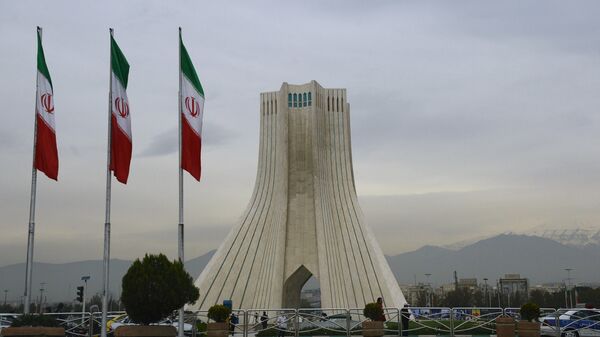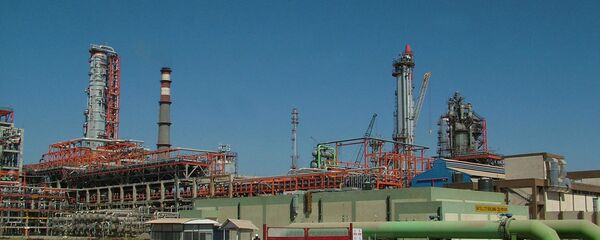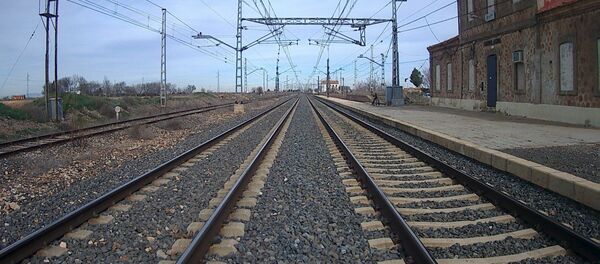Tehran has announced its intention to soon hold a ministerial meeting to assess the work on the 7,200 km International North-South Transport Corridor (INSTC) connecting India, Iran, Azerbaijan and Russia via ship, rail and road. The meeting is being viewed as highly significant as it comes against the backdrop of several European and Korean firms exhibiting reluctance to continue work in the sanctions-hit Islamic Republic in the last few months.
READ MORE: Iran Becomes Second Largest Oil Supplier to India, Replaces Saudi Arabia
"The Islamic Republic of Iran, as one of the founders of the North-South International Transport Corridor, is planning to hold a meeting of the ministers of the corridor in conjunction with the seventh meeting of the Coordination Council in Tehran in early October 2018," the Iranian Embassy in New Delhi announced.
In the last week, India's Minister of External Affairs Sushma Swaraj met leaders of three Central Asian countries and reaffirmed New Delhi's commitment towards the project.
Seeing off External Affairs Minister @SushmaSwaraj following her successful visit to Astana, Kazakhstan. She left for Issyk Kul, Kyrgyzstan for second leg of her visit. @MEAIndia pic.twitter.com/n50BhjXXku
— IndiaInKazakhstan (@indembastana) August 3, 2018
"The International North-South Transport Corridor [INSTC] is gaining momentum and the member states are working together to popularize the corridor," Swaraj said on August 3 in Astana, during her visit to Kazakhstan.
"Iran is keen to activate INSTC with the help of Azerbaijan. It has held talks with India and Russia in this regard," Ramin Guluzade said after the meeting with his Iranian counterpart in Tehran.
READ MORE: Russian Railways: Electrification Project in Iran Not Subject to US Sanctions
On July 2, Russia and Iran inaugurated a $1.39 billion project financed by Russian Railways to electrify the 495 km Garmsar-Ince Burun railway line in Iran, which stretches across Turkmenistan and Kazakhstan, linking Central Asia to the Persian Gulf and beyond.
The INSTC will provide an alternative to traditional sea routes, which rely heavily on the Suez Canal, the Mediterranean and Baltic Seas to connect South Asia to Central Europe through Russia.




